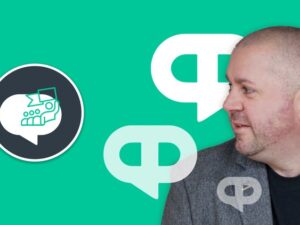Fundamentos del espíritu empresarial: De la idea inicial al éxito
- Descripción
- Plan de estudios
- PREGUNTAS FRECUENTES
- Reseñas
Considering starting a business but feel lost on where to begin? Do you often daydream about great ideas but are unsure how to bring them to life? Wondering if your business idea has the potential to succeed? This course is your roadmap!
Starting a business is a journey, and like all journeys, there are bumps along the way. Many new businesses face challenges right out of the gate, and a good number stumble before they soar. This is why it's crucial to equip yourself with knowledge and tools from the outset. Our course is designed to be your guiding light. Through easy-to-follow videos, we'll walk you through the steps to transform your ideas into a functioning business. From laying the foundation to expanding and growing, we've got insights and practical advice to ensure you're on the right track.
However, having a brilliant idea isn't enough. You need to spread the word and get noticed. That's where our deep dive into marketing comes in. We simplify the world of marketing for you, offering actionable tips beyond just basic email campaigns. Whether you're trying to connect with a local audience or aiming for a broader reach, our strategies ensure your business gets the spotlight it deserves.
An essential piece of the puzzle is your mindset. Staying optimistic, resilient, and believing in your vision is crucial. We dedicate a section of our course to help you build that unshakeable confidence and maintain a can-do spirit, even when faced with hurdles.
Behind every successful business is a story of determination, learning, and growth. Many big names in the business world started with just an idea, much like yours. So, why not you next? Dive into this course, equip yourself with the knowledge, and begin your exciting entrepreneurial journey. Ready to take the leap? Join us!
-
1Junior's storyLección de vídeo
In this lecture Junior explains what he's going to teach you in this course, how he became an entrepreneur and why he's the perfect person to teach you how to be an entrepreneur.
-
2Why you should start a businessLección de vídeo
In this lecture explains how entrepreneurship can give you freedom, and the importance of impact and influence in other people's lives. He explains the difference between typical entrepreneurship and social entrepreneurship.
-
3What you are going to learnLección de vídeo
Junior explains how he's going to cover everything you need to know to set up a business in 90 days. From sales and marketing, to how to find a mentor and finding that perfect business idea. He's going to share the strategy and frameworks he uses to build successful businesses.
-
4Shameless book plugLección de vídeo
In this shameless book plug (!) Junior explains what inspired him to write his books: "How to be a Student Entrepreneur" and "Young 'Fed Up' Professional"
If you're interested in Junior's books, you can find more information here: http://www.juniorogunyemi.com/store.html
-
5The opportunity ahead for entrepreneursLección de vídeo
In this lecture Junior explains why now is the time to be an entrepreneur and how the word of work has changed enormously in just the few years. He explains why tomorrow's working world of doesn't have job security, and why that isn't necessarily a bad thing.
-
6Factors that contribute to failureLección de vídeo
Junior covers why people fail in business, and finding patterns which help you avoid failure. He covers how everything rises or falls on leadership, and nothing else. Why Richard Branson would turn around your business, but you might not be able to turn around his.
-
7The secret to successLección de vídeo
In this lecture Junior explains the three behaviours you see when businesses start to fail: blame, denial and quitting. He covers why leaders have to take responsibility, even when things fail or go wrong. Why everything always boils down to leaders taking responsibility and leading.
-
8The 4 stages of entrepreneurshipLección de vídeo
In this section Junior takes you through the 4 stages of being an entrepreneur and explains how you move from each one to the next:
1 - The Dreamer
2 - The Dabbler
3 - The Do-er
4 - The Dominator
-
9Finding a million dollar idea - the magic formulaLección de vídeo
In this section Junior wants to try and help you find the million dollar idea and the magic formula:
Idea + Execution = Result
-
10Focus on adding value and solving problemsLección de vídeo
Junior explains why solving problems is the best place to find a business idea. How listening to potential customers and what they moan about is a great place to find that winning idea.
-
11Step by step guide to coming up with ideaLección de vídeo
In this lecture Junior covers a step by step framework to designing a start-up business. People, then problems, then solution to that problem, and finally systemising the solution.
-
12Resourcefulness: Using what you have to generate business opportunitiesLección de vídeo
One of the best traits of an entrepreneur is resourcefulness. Junior gives some examples of how being resourceful and savvy can get your business off the ground. How using your existing assets or skills can help you launch a business.
-
13Being relentlessLección de vídeo
Starting a business can be tiring, especially when you're living off a shoestring. You need to identify your end goal, and you need to focus on that during the entrepreneurial journey. Being relentless is key to this.
-
14What is the value of a mentor?Lección de vídeo
Junior explains the value of a mentor, how to attract a mentor and what to look for in a mentor. Why getting a mentor can save you time and help you to avoid pitfalls.
-
15Where do I find a mentor?Lección de vídeo
Junior explains how he found a mentor and used Twitter to build a relationship with a complete stranger. How you can also use networking events or speaking events.
-
16How do I attract a mentor?Lección de vídeo
Junior explains that you need to be remarkable for an mentor to be interested in you. Showing that you're hungry to learn, a teachable person. Asking questions is key, and you need to be adaptable to mentor's needs. You also need to be consistent and proactive, and never lazy.
-
17What is idea validation?Lección de vídeo
This section explains why validation is key for any business idea and the assumptions behind it. He explains the danger of launching a business on false assumptions, and why validating assumptions with potential customers can save you a huge amount of heartache and failure.
-
18Identify and test your major assumptionLección de vídeo
Junior explains how you identify and test your major assumptions before you launch your business.
-
19What is a Minimum Viable Product (MVP)?Lección de vídeo
Junior explains what an MVP is, and the importance of demonstrating one. How you can build an MVP with just one feature at a time to test individual assumptions with customers before building a complete solution.
-
20MVP: Perfect is not the purposeLección de vídeo
Junior sums up this section by explaining why your product doesn't have to be perfect first time round, it just has to be fit for purpose. And why perfection is a never ending search, even for billion dollar businesses.
-
21Raising funds: Is the money a cushion or springboardLección de vídeo
In this section Junior explains the difference between a cushion and a springboard, and how that choice will impact where you search for investors.
-
22Raising funds: How to bootstrapLección de vídeo
Junior explains why bootstrapping is the best way to start a business. How it requires sacrifice and why getting in front of your first set of clients is the goal you should be aiming for.
-
23Raising funds: Alternative sourcesLección de vídeo
In this section Junior explains other sources of funding you can look at, for example friends and family, loans, angel investors, venture capitalists, crowdfunding (for equity or product sales) or even joint ventures.
-
24Managing money: Cashflow is kingLección de vídeo
Junior explains why cashflow is the blood of your business, and why it's absolutely critical to your success. Why timing is critical and he gives some simple tips on how you can manage cash flow better. Cashflow is king!
-
25Managing money: BudgetingLección de vídeo
Budgeting can be time consuming and boring, but it is essential. Junior gives you some tips on how to budget better and why you need to instill discipline in how you budget. He talks about the value in having separate bank accounts to make money management easier, and why having an accountability partner can keep you on the straight and narrow.
-
26Know your market: Understanding the WHOLección de vídeo
Junior explains three key principles you need to consider when it comes to marketing. The first is "Who" - and identifying what your customer looks like. What are their demographics? What do they like? How can you narrow down who you are trying to serve?
-
27Know your market: Understanding the WHYLección de vídeo
The next question is "WHY" customers will buy your products. It may not always be the thing you think it is. It will also help you target your marketing more accurately and not waste money.
-
28Know your market: Understanding the WHERELección de vídeo
The final question is where your customers are buying from. The "WHERE". Not just geographically, but also on what media they see your products.
-
29Know your message: What makes the audience go wow!Lección de vídeo
In this section Junior focuses on what makes a really good marketing message. Why you need to stay away from jargon and make it simple for customers. Can you articulate the benefits of your product or service to customers, rather than the features? What makes your product unique - how do you differentiate yourself? And finally, what's the big outcome? How do you get people to buy into your vision? How can you bring emotion into the message?
-
30Why sales people have a bad reputationLección de vídeo
In this section Junior talks about the importance of sales for every entrepreneur. Why people dislike the idea of selling, and what you can do to turn that round. What makes a bad salesperson and how you can avoid those pitfalls. Why you should be authentic and sell to people who's needs you can fulfill.
-
31How to do it properly using B.I.K.ELección de vídeo
Junior introduces a step by step framework to help you sell: BIKE
B is for Background.
I is the Issue.
K is the Knock On Effects.
E is the Ending.
He explains the difference between probing and manipulating, and how you are facilitating a process.
Please take a look at the attached downloadable PDF for more information.
-
32Three step process to phone getting people on the phoneLección de vídeo
Junior explains why you also need to be able to sell to people over the phone, and the value compared to selling face to face. You need to be able to grab their attention and engage them in the first 15 seconds.
-
33Person, Purpose, Process, PayoffLección de vídeo
Junior introduces his four stage framework to engage people over the phone.
- Person
- Purpose
- Process
- Payoff
He gives an example of a 15 second entry to hook a potential client over the phone.
-
34The difference between small and BIG contractsLección de vídeo
In this section Junior explains how you can adapt the BIKE framework for bigger clients, and the difference in process you need to take account of compared to smaller clients.
-
35The process for approaching big clients and contractsLección de vídeo
In this section, Junior explains the concept of gatekeepers and how to engage them. How you need to consider the different motivations and objectives of each person you meet and how they can differ.
-
36Scaling: The importance of systemsLección de vídeo
In this lecture, Junior explains the importance of building systems into your business, and the concept of the magic box. Why you need to design your magic box to give you freedom and why being human limits the success of your business.
-
37Scaling: Creating a magic boxLección de vídeo
Junior explains why you should design your business to operate without you. Your responsibility is to teach other people to run the business for you, and the importance of delegation.
-
38Bringing in the right team: Character, competence and chemistryLección de vídeo
Junior explains the key things you need to look out for to find your "rock star" partner to work with in your business. The three key attributes are:
- Character
- Competence
- Chemistry
-
39Partner, employ or outsourceLección de vídeo
In this section, Junior explains the pro's and con's of having a business partner, verses employees and freelancers.


Las cookies son pequeños archivos de datos que un sitio web envía subrepticiamente a su computadora, a menudo en forma de archivos de texto o archivos de imágenes. Las cookies nos permiten almacenar o recuperar información sobre su navegador, que podría usarse para identificar quién es usted. Estos datos generalmente se utilizan para hacer que el sitio funcione como usted espera. Tiene la opción de optar por no recibir algunas cookies ya que valoramos su privacidad. Para obtener más información y cambiar su configuración, haga clic en uno de los títulos de categoría a continuación. El bloqueo de ciertos tipos de cookies, por otro lado, puede perjudicar seriamente su experiencia en el sitio y el acceso a los servicios.
Estas cookies permiten que el sitio web brinde una mejor funcionalidad y personalización. Pueden ser establecidos por nosotros o por terceros proveedores cuyos servicios hemos agregado a nuestras páginas. Si no permite estas cookies, es posible que algunos o todos estos servicios no funcionen correctamente.
Las cookies que hemos establecido en este sitio para permitirle compartir nuestro contenido con sus amigos y redes son la razón por la que existen estas cookies. Pueden realizar un seguimiento de su navegador en diferentes sitios y crear un perfil de sus intereses. Esto puede influir en el material y los mensajes que ve en otros sitios web. Es posible que no pueda usar o ver estas herramientas para compartir si no acepta estas cookies.
Las cookies de socios publicitarios pueden utilizarse en nuestro sitio web para crear un perfil de sus intereses y mostrar anuncios relevantes en otros sitios web. No recopilan información de identificación personal, aunque se basan en la identificación única de su navegador y dispositivo de Internet. Recibirá publicidad menos dirigida si rechaza estas cookies.
Estas cookies son esenciales para el funcionamiento del sitio web y no se pueden desactivar en nuestros sistemas. Por lo general, solo se configuran en respuesta a acciones realizadas por usted, que equivalen a una solicitud de servicios, como configurar sus preferencias de privacidad, iniciar sesión o completar formularios. Puede modificar la configuración de su navegador para bloquear o alertarlo sobre estas cookies, pero algunas partes del sitio no funcionarán correctamente si lo hace. Estas cookies no almacenan ninguna información que pueda identificar personalmente a alguien.
Contar las visitas y medir la actividad es esencial para mantener un sitio web con un buen rendimiento. Estas cookies nos permiten hacer precisamente eso al proporcionar información sobre qué páginas son las más o menos populares, cómo se mueven los usuarios por el sitio, etc. Sin estas cookies, no podríamos mejorar el rendimiento de nuestro sitio.

Únase a nuestro círculo interno y nunca pierda el ritmo
Nuevos cursos, nueva información y nuevas habilidades tienen el potencial de mejorar drásticamente su vida. Asegúrate de no perderte ninguno y mantente informado automáticamente.
* Odiamos el spam y te prometemos no enviar nada que no quieras. Al registrarte aceptas nuestros política de privacidad.










